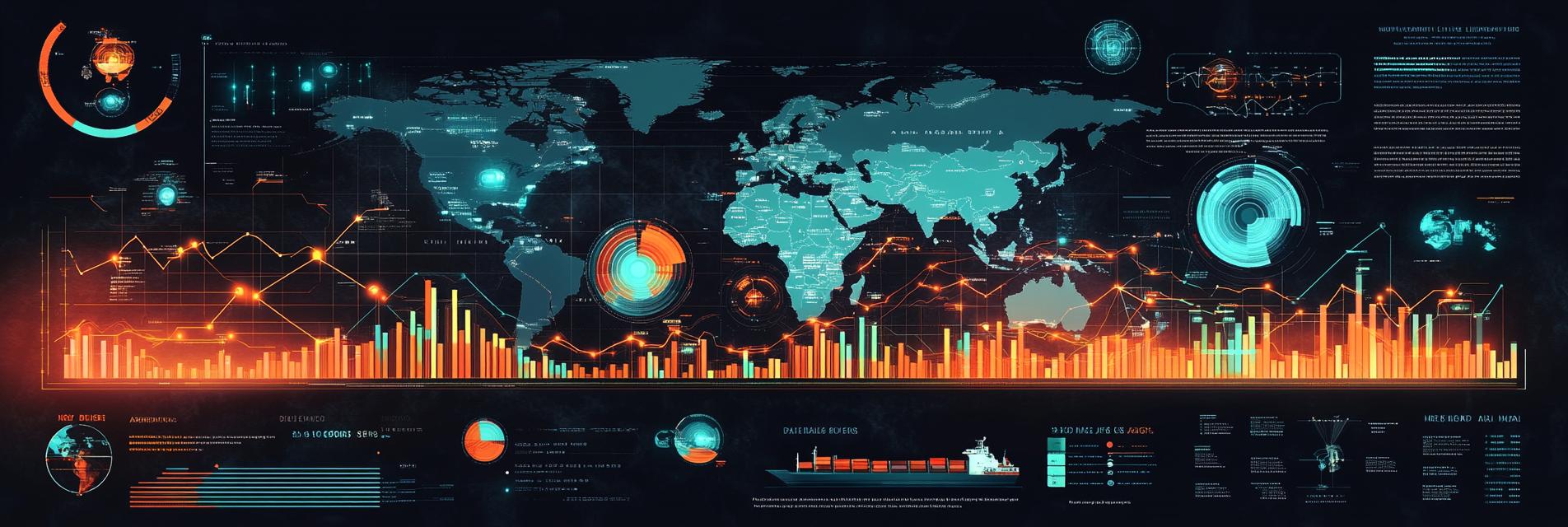 400-076-6558智领未来,外贸超级营销员
400-076-6558智领未来,外贸超级营销员
 400-076-6558智领未来,外贸超级营销员
400-076-6558智领未来,外贸超级营销员

In an era where data reigns supreme, leveraging analytics to inform business decisions is not just beneficial—it's crucial. As a passionate advocate for data-driven strategies, I've observed the transformational role that data plays in forecasting market trends, especially in global trade. This article delves into those insights, the challenges faced by industry players, and how businesses can effectively utilize data to navigate market dynamics.
The global trade landscape is experiencing unprecedented changes, influenced by various factors such as geopolitical tensions, pandemics, and technological advancements. One of the most pressing pain points is the inability to predict market shifts accurately—an issue that can lead to missed opportunities and significant losses. For instance, companies relying solely on historical performance without integrating comprehensive data analysis often find themselves reacting to market changes rather than proactively anticipating them.
To tackle these challenges, businesses must embrace a data-centric approach. By harnessing analytics, companies can unlock crucial insights that facilitate informed decision-making. Here are several strategies to leverage data effectively:
Investing in advanced data collection tools enables more accurate and timely information. Companies can utilize web scraping, API integrations, and market research platforms to gather a diverse range of data points.
Applying machine learning algorithms and predictive modeling helps businesses foresee shifts in market trends. These tools can analyze historical data alongside current market signals to provide forecasts that lend insight into future conditions.
Encouraging a mindset that values data at all organizational levels fosters collaboration and enhances overall strategic alignment. Training employees on data literacy equips them to extract insights and contribute to informed decision-making.
Many organizations are already reaping the benefits of a data-centric approach to global trade. For instance, a leading logistics firm incorporated predictive analytics into its operations, allowing it to anticipate demand fluctuations with remarkable accuracy.

As a result, they optimized their inventory management, reducing stockouts by 30% and improving customer satisfaction rates. This success story serves as a testament to the power of data in reshaping business outcomes.
In conclusion, the ability to predict market trends in global trade is intricately linked to how effectively businesses leverage data. By addressing industry pain points with robust data collection and analysis, organizations can not only navigate challenges but also harness opportunities in a rapidly evolving market landscape. It's time for businesses to unlock the full potential of data and lead the charge in global trade innovation.
Together, let’s embrace a future where data drives smarter decision-making for sustained growth in global trade!
.png?x-oss-process=image/resize,h_100,m_lfit/format,webp)
.png?x-oss-process=image/resize,h_100,m_lfit/format,webp)

.png?x-oss-process=image/resize,h_100,m_lfit/format,webp)
.png?x-oss-process=image/resize,h_100,m_lfit/format,webp)
.png?x-oss-process=image/resize,h_100,m_lfit/format,webp)
.png?x-oss-process=image/resize,h_100,m_lfit/format,webp)
